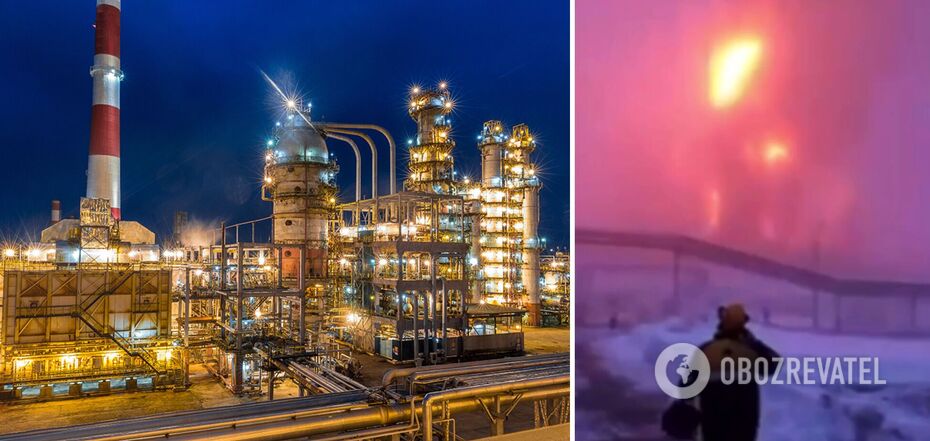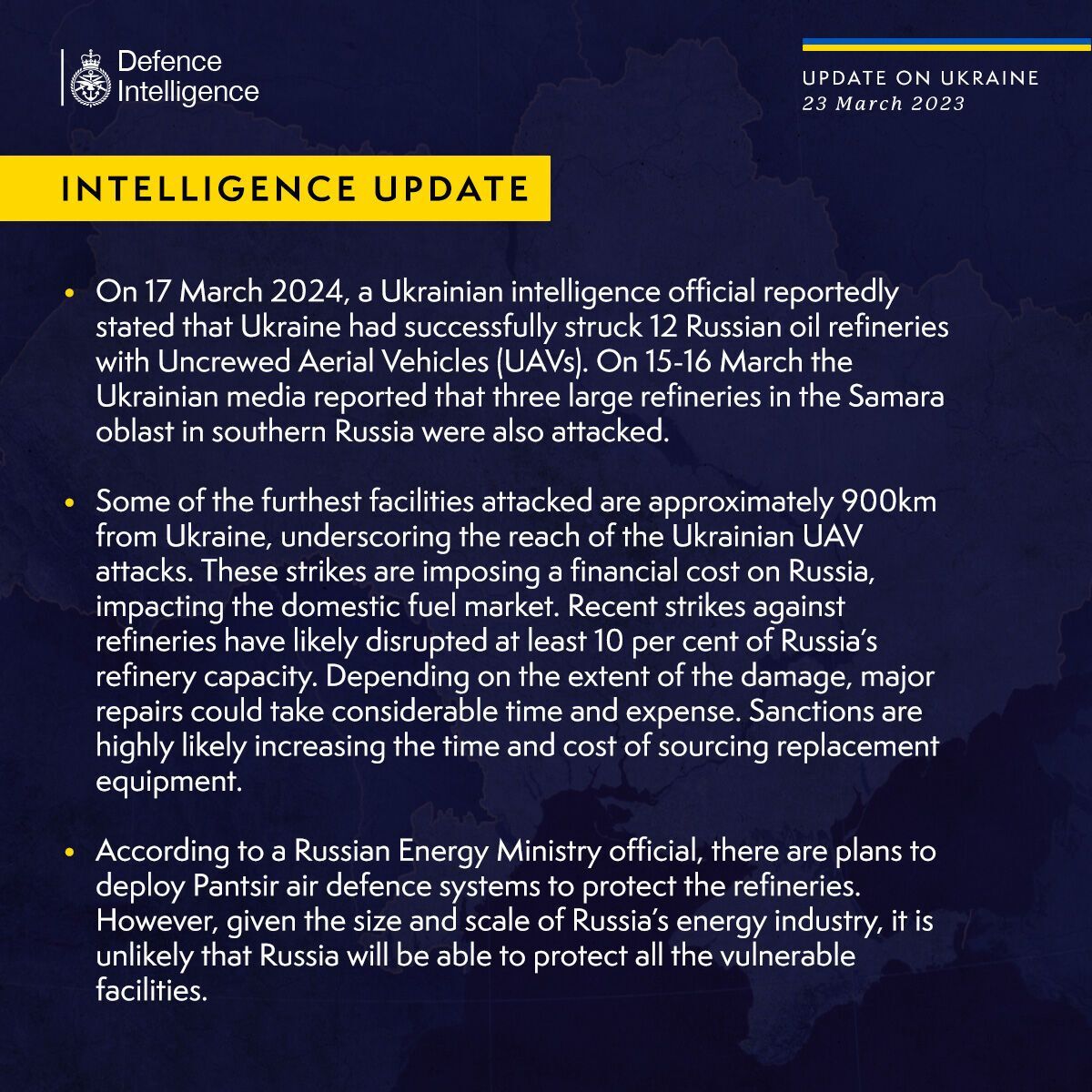War in Ukraine
Russia is unable to protect all its refineries from UAV strikes - British intelligence
Recent strikes on Russian refineries have likely disrupted at least 10% of Russia's oil refining capacity. Due to the sanctions, it will take a long time to repair the equipment, and although Moscow has promised to "cover" the refineries with "shells," it is unlikely that it will be able to protect all "vulnerable" facilities.
This is stated in the UK intelligence report published on March 23 on the social network X. According to the agency, on March 17, a representative of Ukrainian intelligence said that Ukraine had successfully struck 12 Russian refineries using UAVs.
On March 15-16, Ukrainian media reported that three large refineries in the Samara region in southern Russia were also attacked.
"Some of the most remote facilities under attack are located approximately 900 kilometers from Ukraine, which underscores the range of Ukrainian UAV attacks. These strikes are causing a financial cost to Russia by affecting the domestic fuel market," the British intelligence service said.
The report also says that the strikes on refineries in Russia have probably disrupted the operation of at least 10% of Russia's refining capacity.
Overhauls could take considerable time and money, and sanctions are likely to increase the time and cost of replacing equipment, according to British intelligence.
"According to a representative of the Russian Ministry of Energy, it is planned to deploy the Pantsyr air defense system to protect oil refineries. However, given the size and scale of the Russian energy industry, it is unlikely that Russia will be able to protect all vulnerable facilities," the report says.
As OBOZ.UA reported earlier, ISW concluded that a series of attacks by Ukrainian drones on refineries in Russia could have seriously undermined Russia's oil refining capacity. Up to 11% of the total capacity could have been out of commission.
According to Bloomberg, at least nine major refineries have been attacked in Russia since the beginning of the year, meaning that Ukraine has entered a new phase in the war.
After the attacks, Moscow was forced to impose a ban on gasoline exports and is now trying to increase crude oil sales. However, according to Reuters, oil exports from Russia may soon fall along with its production volumes, as there will be no place to store the raw materials.




























